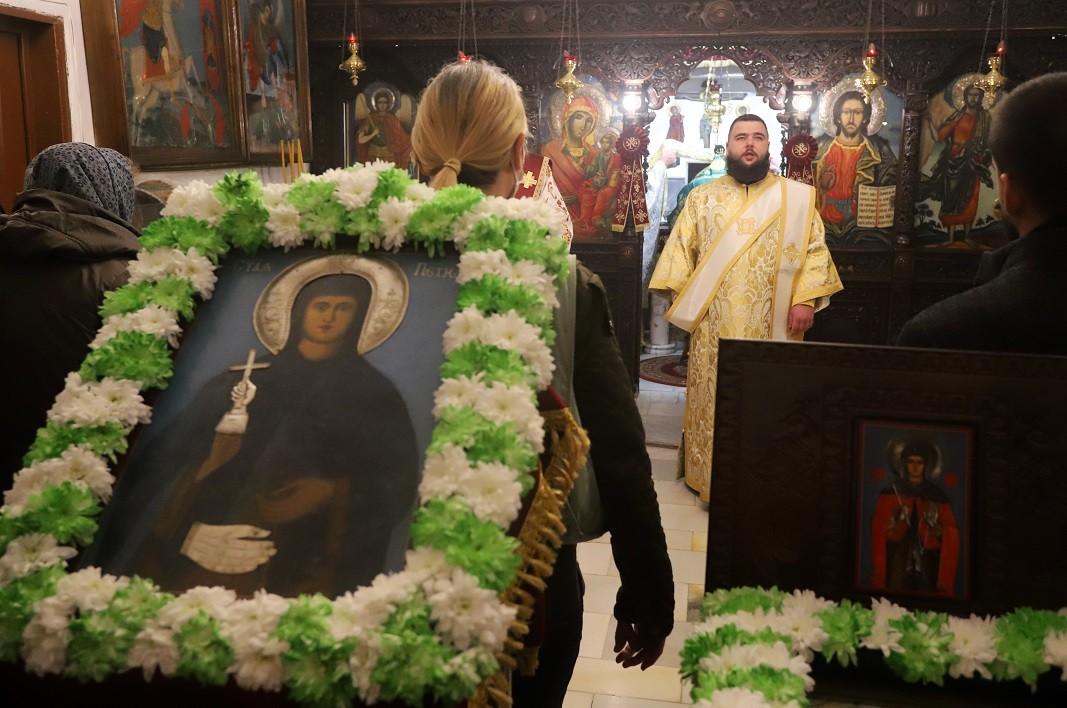Saint Petka was born in the XI century in the town of Epibat, on the Sea of Marmara, not far from Constantinople, in a rich Bulgarian family, we learn from the saint's biography.
She led a pious life, following Christ's command of love and mercy to those in need, and after her death her holy relics became a symbol of the struggle to preserve Christianity from the assimilation of Islam. In 1238 Bulgarian tsar Ivan Asen II carried the relics of the saint to Tarnovgrad (today Veliko Tarnovo - ed.), where they were preserved for nearly two centuries until the Ottoman conquest of the old Bulgarian capital. After two centuries of wandering, in 1641 the remains of St. Petka were laid to rest in the Metropolitan Cathedral in Iasi, northern Romania, where they continue to attract pilgrims from all over the world to this day.
Countless tales and legends tell about the miraculous healing powers of St. Petka, who is regarded as the patron saint of childbirth and fertility of both humans and animals. According to the folklore calendar Petkovden (St Petka's Day) is considered the end autumn, and it also of marks the end of the agricultural year.
Ritual breads and kurban soup are prepared on this day. The largest bread is kneaded in honour of the saint.
The only cave chapel in Bulgaria dedicated to St. Petka is located near the town of Trun.

Every year on October 14, local women bake special traditional bread, which is then brought to the cave where, according to folk belief, the saint lived. In the cave there is a large stone in the shape of a round loaf of bread. The priest blesses the bread brought to the shrine, which is then distributed for the health of all present.
The water that seeps through the rocks in the cave chapel is collected in special bowls because, according to the worshippers, it helps heal illnesses.

There are many shrines located in some of the most beautiful and mystical spots of Bulgaria dedicated to St. Petka of Bulgaria. And the most famous church bearing the saint's name is in the heart of Sofia. You will learn interesting details about it from the material Saint Petka Stara church – venerable guardian of Christianity from the collection of Radio Bulgaria.
Compiled by: Veneta Nikolova
English version: Elizabeth Radkova
Photos: BGNES, tran.egov.bgWhen we have a special occasion where we meet relatives or friends, as a sign of respect and as a memory, we usually present them with a gift, complete with a beautiful card. In the past, the card received was kept as a cherished memory and even passed..
Holy Thursday is one of the two days in the Holy Week when we dye eggs for Easter. Tradition dictates that the oldest woman in the family takes on this important task, and the first egg is always dyed red. The Red Egg – symbol of the..
Today, the Bulgarian National Radio’s foreign language service Radio Bulgaria “speaks” 11 languages. Through the years, languages have been added, others have been dropped – something that happened to the Polish-language programmes. They were aired by..

+359 2 9336 661
